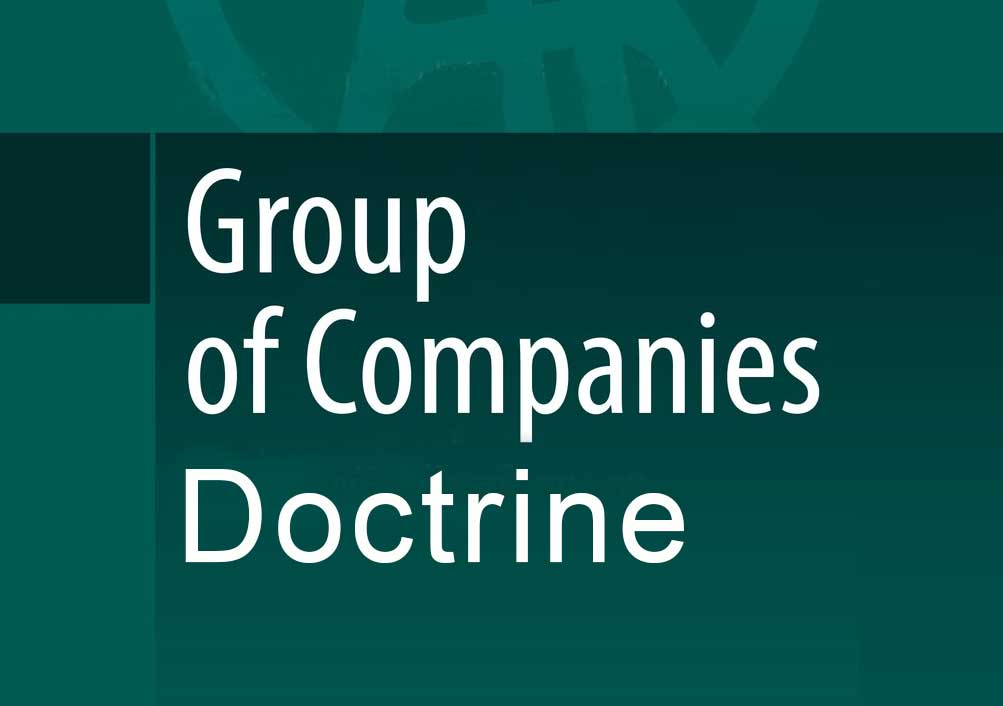In ARB.P.809/2019-DEL HC- ‘Group of Companies’ doctrine can be invoked to bind non-signatory affiliate or third party to arbitration when there is direct relationship between signatory party, direct commonality of subject-matter and composite nature of transaction between parties is same: Delhi HC
Justice Neena Bansal Krishna [07-10-2022]

Read Order: ESHA KEDIA v. MILAN R. PAREKH AND ORS
Mansimran Kaur
New Delhi, October 8, 2022: Noting that the concept of “Group of Companies” has been evolved, the Delhi High Court has affirmed that the said doctrine states that a group of companies constitutes one and the same economic reality of which the arbitral tribunal should take account when it rules on its own jurisdiction.
“As per the principles of contract law, an agreement entered into by one of the Companies in a group, cannot be binding on the other members of the same group, as each Company is a separate legal entity which has separate legal rights and liabilities. However, in certain exceptional circumstances, an arbitration Agreement can be binding on non-signatories”, Justice Neena Bansal Krishna held while considering petition instituted under Section 11(6) of the Arbitration and Conciliation Act, 1996 seeking appointment of an independent and impartial arbitrator.
The respondents(brothers) were in the business of share broking for the last 35 years. The third respondent company- M/s Action Financial Services India Limited was registered under the provisions of Companies Act, 1956, and listed with Bombay Stock Exchange through first respondent Director.
The petitioner and the respondents entered into a Memorandum of Understanding for the purpose of share broking business, wherein the respondents-brothers agreed to take the petitioner as their business partner as per the terms and conditions enshrined in the MoU.
The petitioner decided to exit from the business partnership with the respondents and they entered into an Exit MoU dated November 14, 2014, containing terms and conditions for the exit of the petitioner from the business. The respondents failed to comply with the Exit MoU dated and also requested the petitioner not to initiate any legal action for recovery of the money and an addendum MoU dated February 16, 2016 was executed between the parties, containing the terms and conditions for the exit of the petitioner.
However, the respondents failed to abide by the Addendum Agreement as well and miserably failed to carry out their reciprocal obligations. The petitioner sent a Letter to the respondents, demanding her legitimate payments, but the respondents neither expedited nor made the payments and nor did they comply with the MoU. The respondents through their Letter denied the claims of the petitioner and failed to come forward to solve the disputes between the parties.
The disputes and differences thus arose between the parties. Clause 9 of the MoU provided for Arbitration for resolution of the disputes.
After considering the rival contentions of the parties, the Court noted that the “Group of Companies” doctrine, irrespective of the distinct juridical identity of each of its members, rests on the concept of a 'single economic reality'.At this stage reliance was placed on the case of Chloro Controls India (P) Ltd. v. Severn Trent Water Purification Inc.
The Court further noted, “The circumstances in which the "Group of Companies" doctrine could be invoked to bind the non-signatory affiliate of a parent Company, or inclusion of a third party to an arbitration are- if there is a direct relationship between the party which is a signatory to the arbitration agreement; direct commonality of the subject-matter; the composite nature of the transaction between the parties is the same.”
A "composite transaction" refers to a transaction which is interlinked in nature; or, where the performance of the agreement may not be feasible without the aid, execution, and performance of the supplementary or the ancillary agreement, for achieving the common object, and collectively having a bearing on the dispute, the Court observed.
While the Courts have invoked the Group of Companies doctrine to refer a non-signatory party Company to arbitration, however considering that prima facie the third respondent was not a party to the Arbitration Agreement, though first respondent, who was MD of the respondent Company, signed in his personal capacity, it was left open for the parties to move an appropriate application for impleadment of third respondent, if so advised, the Court further noted.
The other contention raised on behalf of the respondents was that though MoU dated November 14, 2014 nor Addendum MoU dated February 16, 2016 were signed however they did not fructify into binding Agreements as the parties failed to evolve the security and to redistribute the shares as was mentioned in the two documents.
It was quite evident from the submissions that because the terms of two documents were not complied with, the disputes had arisen between the parties which required adjudication. In fact, this assertion of the respondents clearly reflected the existence of arbitrable disputes between the parties which required adjudication, the Court further observed.
The third challenge which was raised was in respect of the limitation. It was asserted that the two documents viz. MoU were dated November 14, 2014 and Addendum MoU dated February 16, 2016, while the present petition was filed only in 2019. In view of the same,the Court noted that in the present case, there was a binding Clause 9 in the Agreement document which was signed by the petitioner and the first respondent.
Considering that there was a valid Arbitration Agreement between the parties (petitioner, and the first two respondents) and in the light of the facts and submissions made, the Bench appointed Mr. Justice Brijesh Sethi, Judge (Retd.) Delhi High Court as the Sole Arbitrator to adjudicate the disputes between the parties.
Sign up for our weekly newsletter to stay up to date on our product, events featured blog, special offer and all of the exciting things that take place here at Legitquest.




Add a Comment